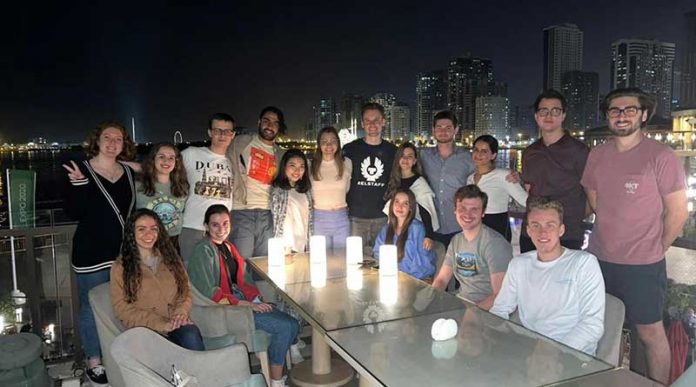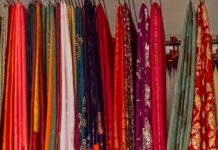The exchange students are loving the experience
By Noel Ceriani
“Dubai is all over social media and it looks to be crazy fun. When I found out AUS was only 30 minutes away, I knew I had to come,” says Aurelia Dogan, an exchange student from Germany.
The American University of Sharjah offers an International Study and Exchange program for both outgoing and incoming students at AUS.
According to the AUS website, there are approximately 90 different nationalities on campus. The International Exchange Office was established to foster and enhance this very aspect. The aim is to provide AUS students and faculty with as many exchange opportunities as possible and increase the number of exchange students.
How the IXO program works
There are three different ways in which AUS students and incoming students can study abroad. The study abroad program options are through bilateral partners, International Student Exchange Programs and visiting students.
Bilateral exchange students pay tuition and fees to their home institution and all other fees to the partner university for the semester of study. Students may apply to up to three bilateral partner universities per semester, according to the AUS website.
“We are partners with 25 universities total in Europe, Canada and the United States, but not in Asia. We send three students, and they send us three students; there are five student slots in total,” said IXO Peer Advisor Ritica Sridhar.
The International Student Exchange Program, which is a non-profit organization, offers a wide choice of universities worldwide. Students apply via IXO’s online application system and once approved by IXO they complete ISEP’s online application. ISEP exchange students pay tuition and fees directly to AUS and nothing to the host university, i.e. meals and housing will be provided by your host university without charge.
“Most incoming students are American, Asian and European. Also, AUS has started a partnership this semester for the first time with the Naval Academy of the United States and once those students finish college they go into the navy,” added Sridhar.
Outgoing students regulations
For AUS students who are interested in going abroad, many programs are available and “students can only go out during their third year and senior year first semester,” said Sridhar.
“The process takes a whole year. If you want to go on fall, then you have to apply for fall a year before. The courses need a lot of research. AUS students apply a year before and incoming students a semester before.”
Students pay for a normal full course load of 12 to 16 credits per semester, as well as an activity fee, lab/technical fees, AUS Health Plan I Fee (if applicable), housing and insurance. Additionally, those on grants or scholarships must obtain approval from the Office of Financial Grants and Scholarships before starting a semester abroad, so that their scholarship applies to their host university that semester.
IXO activities and trips at AUS
IXO plans activities and trips around the United Arab Emirates every semester for incoming students.
“It’s good because wherever they would take us it’s somewhere local. We recently went to the souk in old Dubai and Global Village. These are places we wouldn’t go if someone didn’t take us. It’s a good opportunity to explore places in Dubai or Sharjah,” said Chiaki Goto, a Japanese exchange student.
Some exchange students consider these trips educational.
“Two weeks ago, we did a trip to the Sharjah Research Technology and Innovation Park. I loved it, I think Sharjah is an emirate that invests a lot and I admire that,” said Isabel López a Venezuelan exchange student.
Anna Gianneschi, an exchange student from the USA, said she was taught that the UAE is a magical place with many different nationalities.
Students’ experience in the UAE and AUS
One of the students experienced cultural shock on arrival in the UAE. She was surprised with how internationally diverse the country and AUS are in terms of nationalities.
“Here the people are more open to international things and meeting different people,” said Goto.
Aurelia Dogan and Nikita Kessler, both German exchange students from Maastricht University in the Netherlands, are experiencing a different educational system from the one they’re used to.
“My home university is very unique. We have an eight weeks period of only two courses, in which the class groups are of maximum 15 people and we teach ourselves. We have few lectures that briefly explain modules and we have real life projects with companies that sometimes include a two-hour tutorial with external materials and exercises. Every eight weeks there’s two new courses and new groups,” said Dogan.
Kessler said that his university is much harder because of the way the courses are offered. He added that his perception of an Arab country changed when he arrived in the UAE.
Dogan, meanwhile, said that in an Arab country she felt safe, and she could communicate easily as nearly everyone spoke English.


















